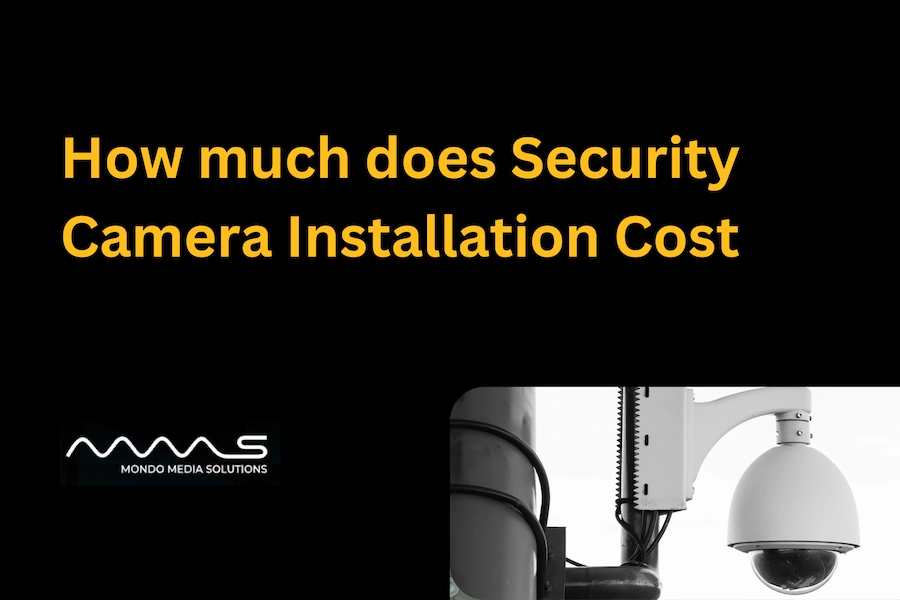Ensuring the safety of your property is a priority, and installing security cameras is a pivotal step in that direction. These cameras not only deter potential intruders but also offer peace of mind by enabling remote surveillance of your property. However, understanding the security camera installation cost can be complex due to various factors, including the type and number of cameras, installation complexity, and ongoing maintenance fees.
This guide provides a clear breakdown of the expenses associated with security camera installations across the United States, helping you make an informed decision that suits your budget and security needs.
Average Cost Overview
The cost to install a security camera system varies based on several factors, including the type of cameras chosen, the number of units required, and the complexity of the installation process. For instance, the type of property and the specific locations where cameras will be installed can influence the total cost. On average, homeowners can expect to spend between $500 and $1,600 for a four-camera setup. This range covers both the equipment and professional smart camera installation services, ensuring that the system is correctly configured and operational.
Per Camera Installation Estimates:
- Wired Cameras: $150 – $500 per camera
- Wireless Cameras: $130 – $400 per camera
These estimates include both the cost of purchasing the camera and the labor charges for installation, which may vary depending on the complexity of the setup and the expertise required to ensure optimal performance.
Factors Influencing Installation Costs
Several elements can impact the overall cost of installing security cameras:
1. Type of Camera:
- Wired Cameras: Often more expensive to install due to the necessity of running cables through walls or ceilings.
- Wireless Cameras: Generally easier and less costly to install but may require additional equipment for optimal performance.
2. Number of Cameras:
Increasing the number of cameras will proportionally raise the total cost. However, some installers offer package deals for multiple cameras, potentially reducing the average cost per unit.
3. Installation Complexity:
Factors such as multi-story homes, hard-to-reach areas, or the need for extensive wiring can increase labor costs.
4. Additional Features:
Features like remote surveillance, high-definition recording, or integration with existing security systems can add to the overall expense.
5. Geographic Location:
Labor rates and material costs can vary by region. Depending on specific local requirements and complexities.
DIY vs. Professional Installation
Opting for a DIY installation method can reduce labor costs, potentially saving up to $200 per camera. This method offers more flexibility and allows you to be personally involved in the setup. On the other hand, choosing a professional security camera installation company ensures correct setup and optimal functionality.
Professionals bring expertise and experience, making sure all components are properly configured and operational. Their services typically cost between $80 to $200 per camera, providing peace of mind and a hassle-free experience.
Additional Costs to Consider
Beyond the primary installation expenses, it’s important to consider the following potential costs that might arise:
- Storage Solutions: Investing in storage solutions such as hard drives or cloud storage is essential for archiving video footage, which can contribute to the overall cost of maintaining the system.
- Maintenance: Regular maintenance is crucial to ensure the system’s longevity and reliability. This may involve periodic inspections, updates, and repairs, which could lead to additional expenses over time.
Conclusion
Investing in a security camera system is a crucial step toward safeguarding your property. While the costs can vary based on numerous factors, understanding these variables allows for informed decision-making. Whether opting for a basic setup or a comprehensive surveillance system, it’s essential to balance cost considerations with the desired level of security.
